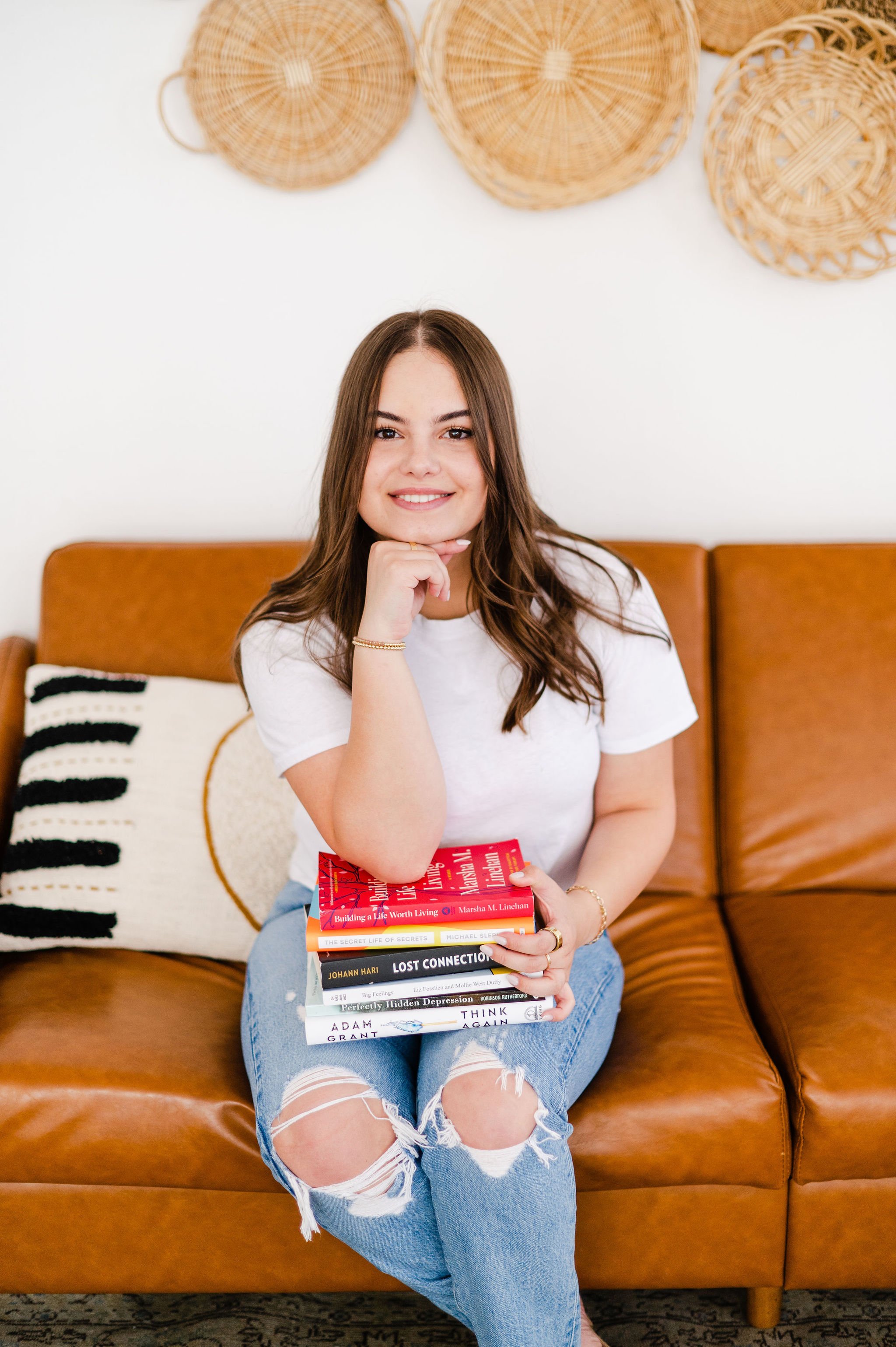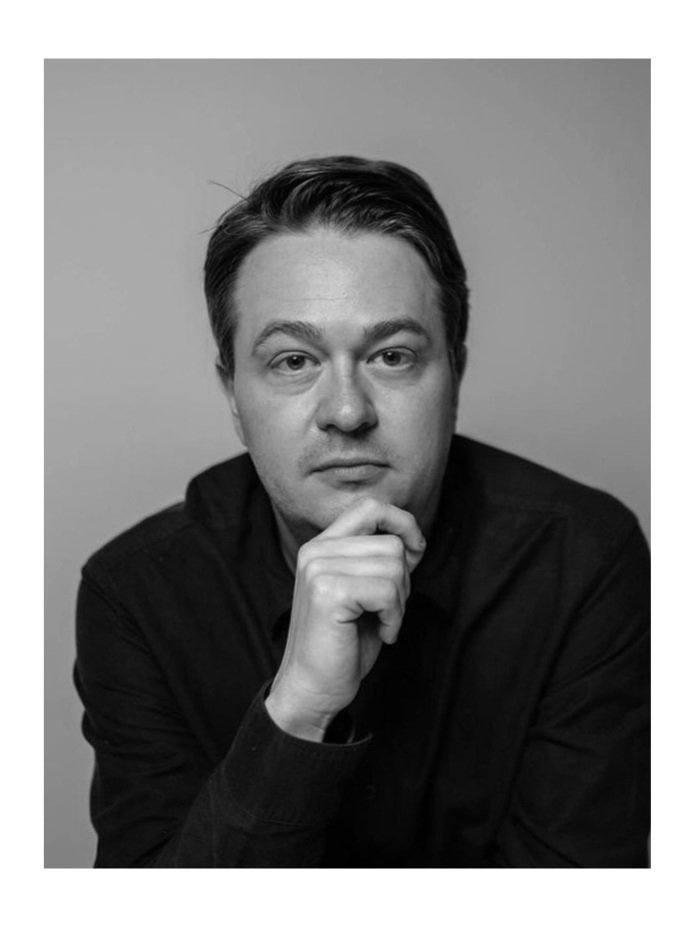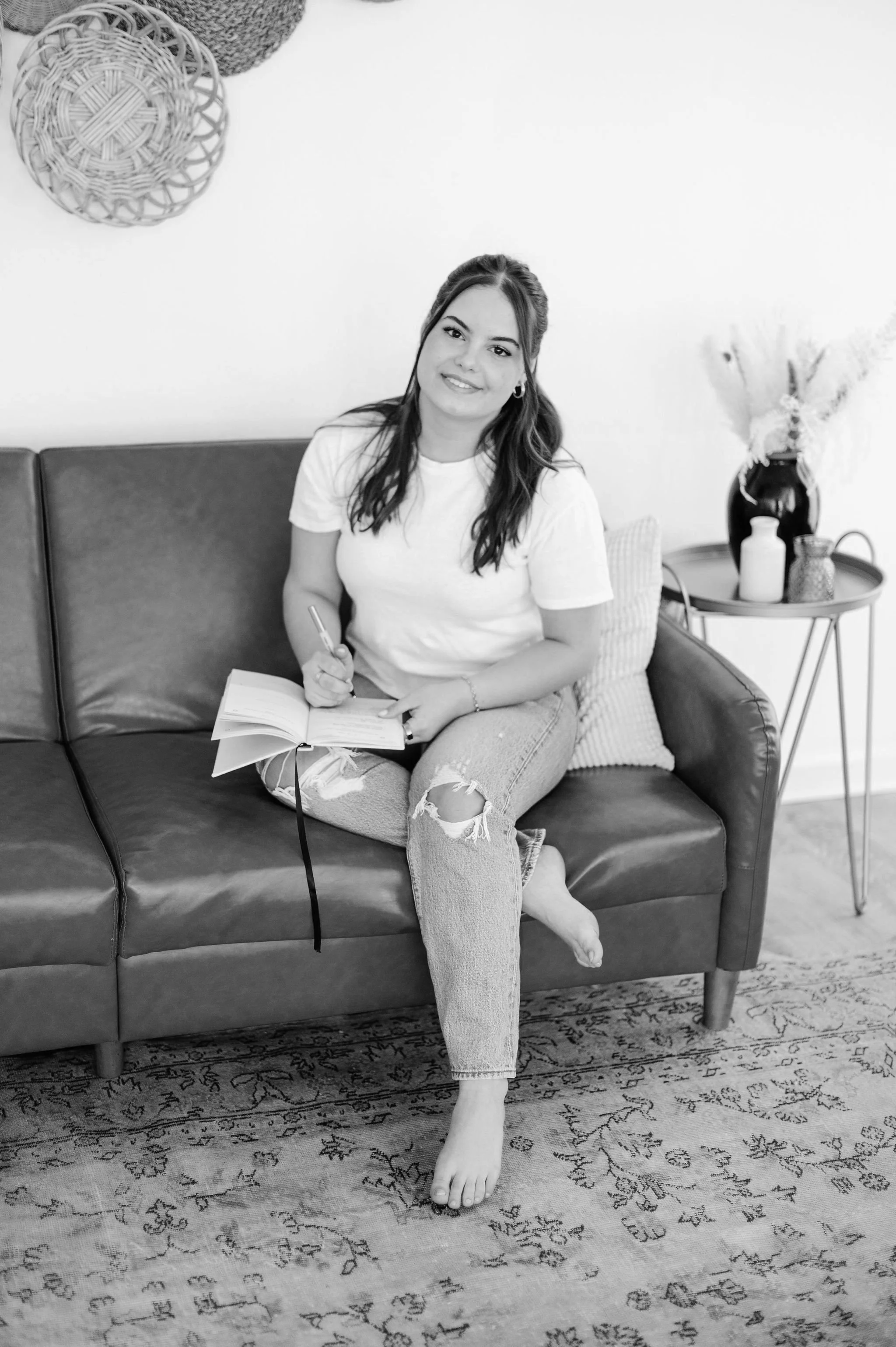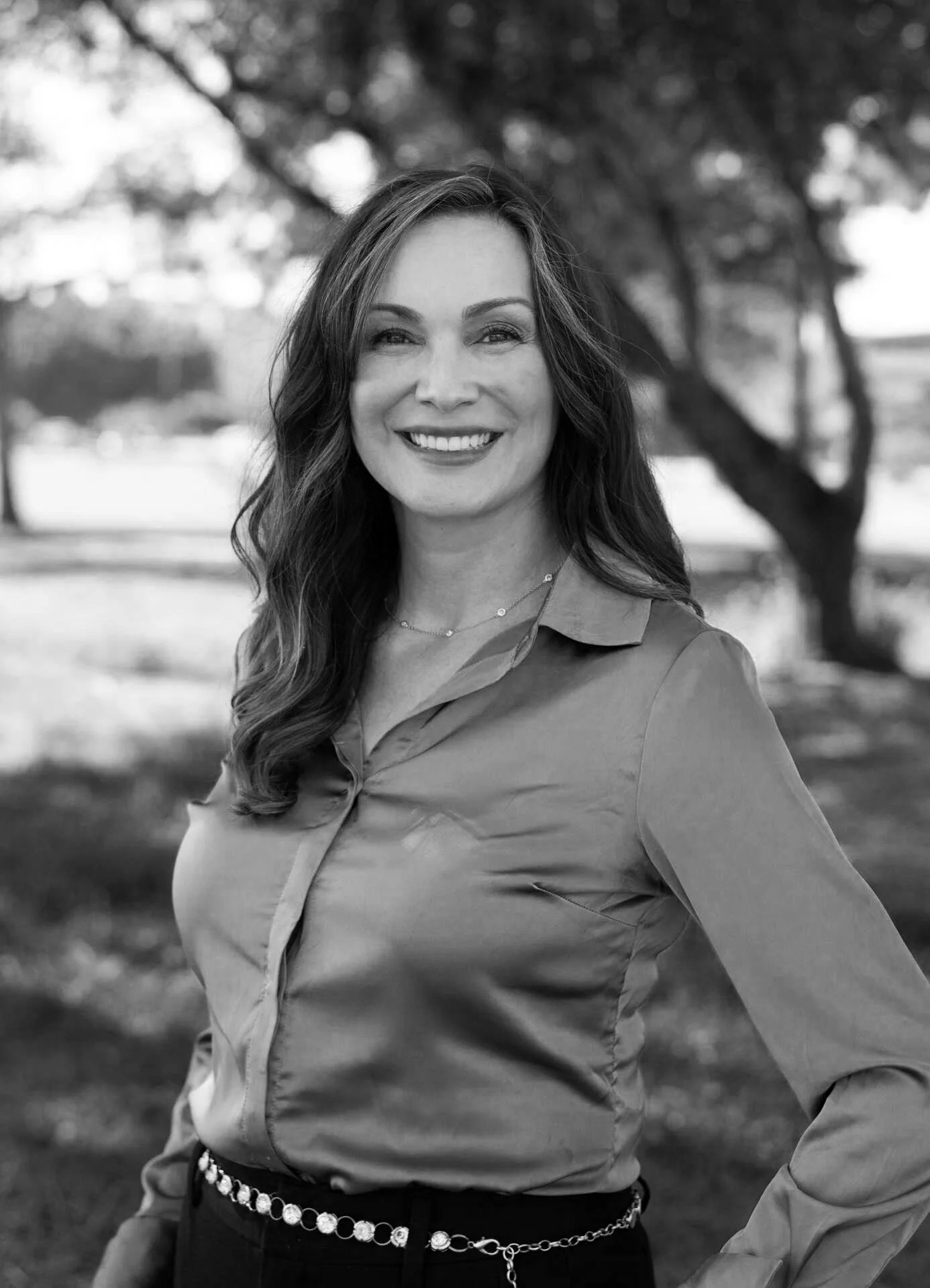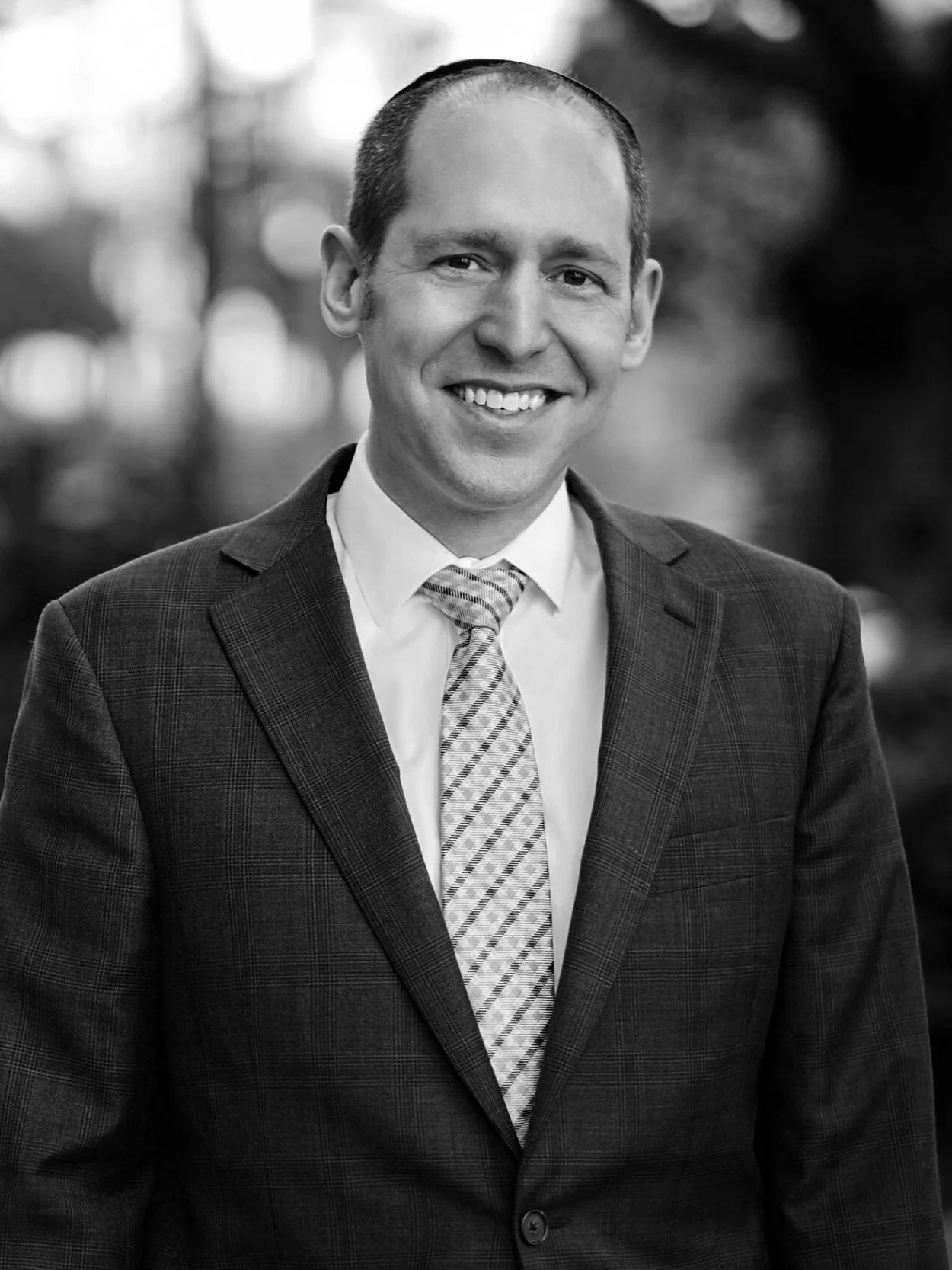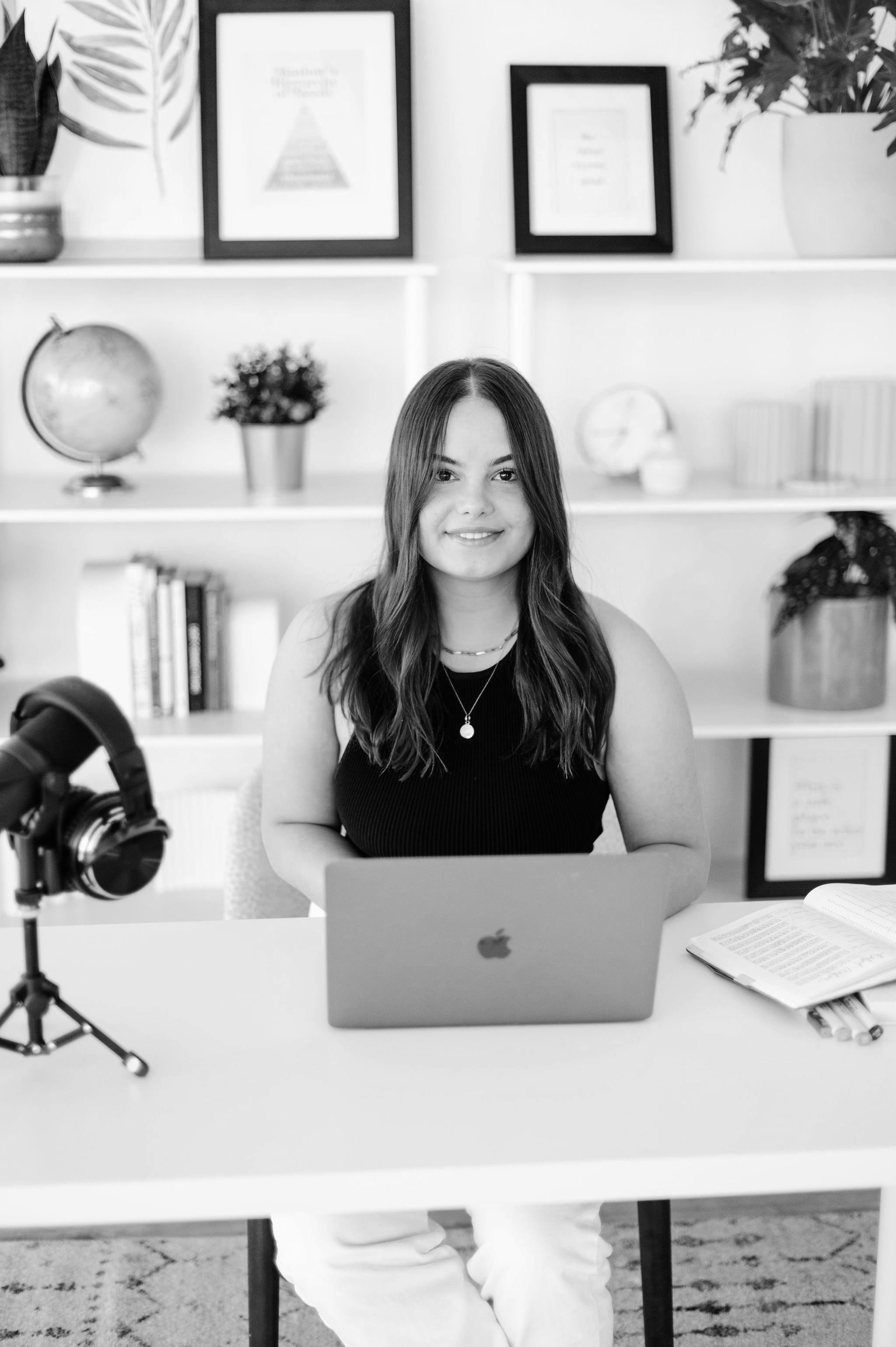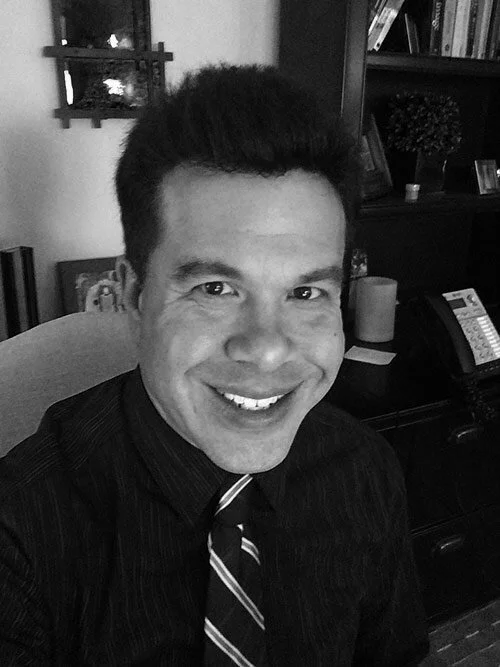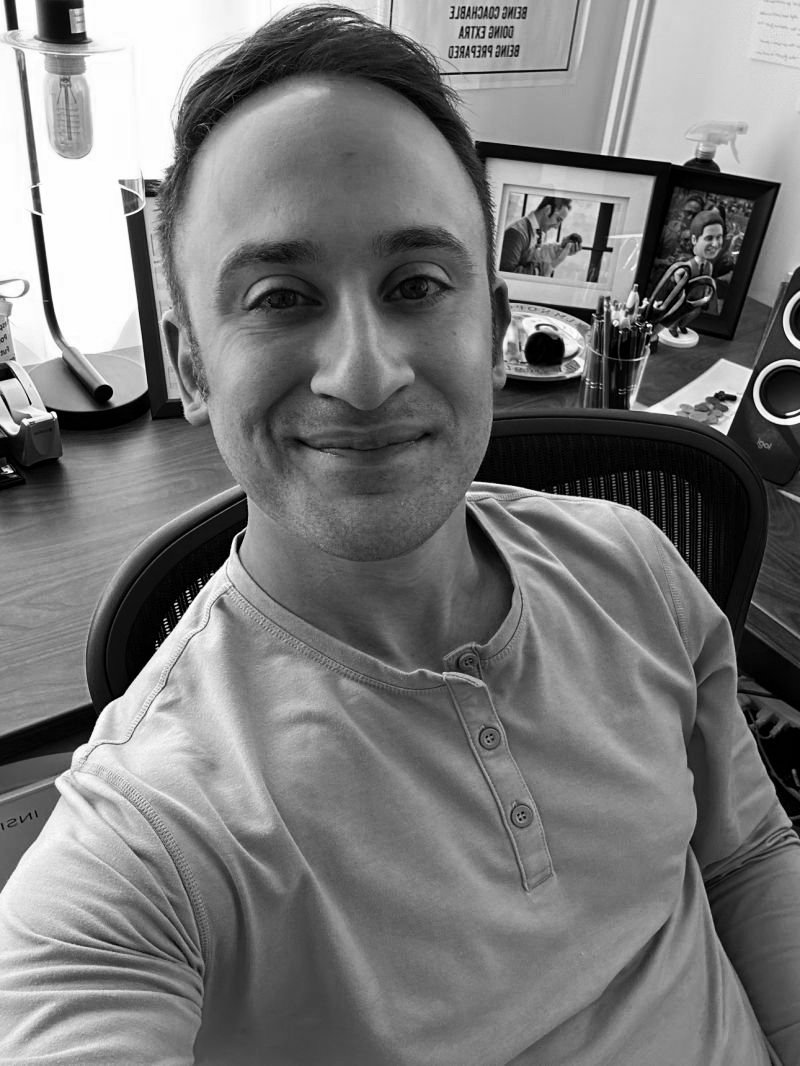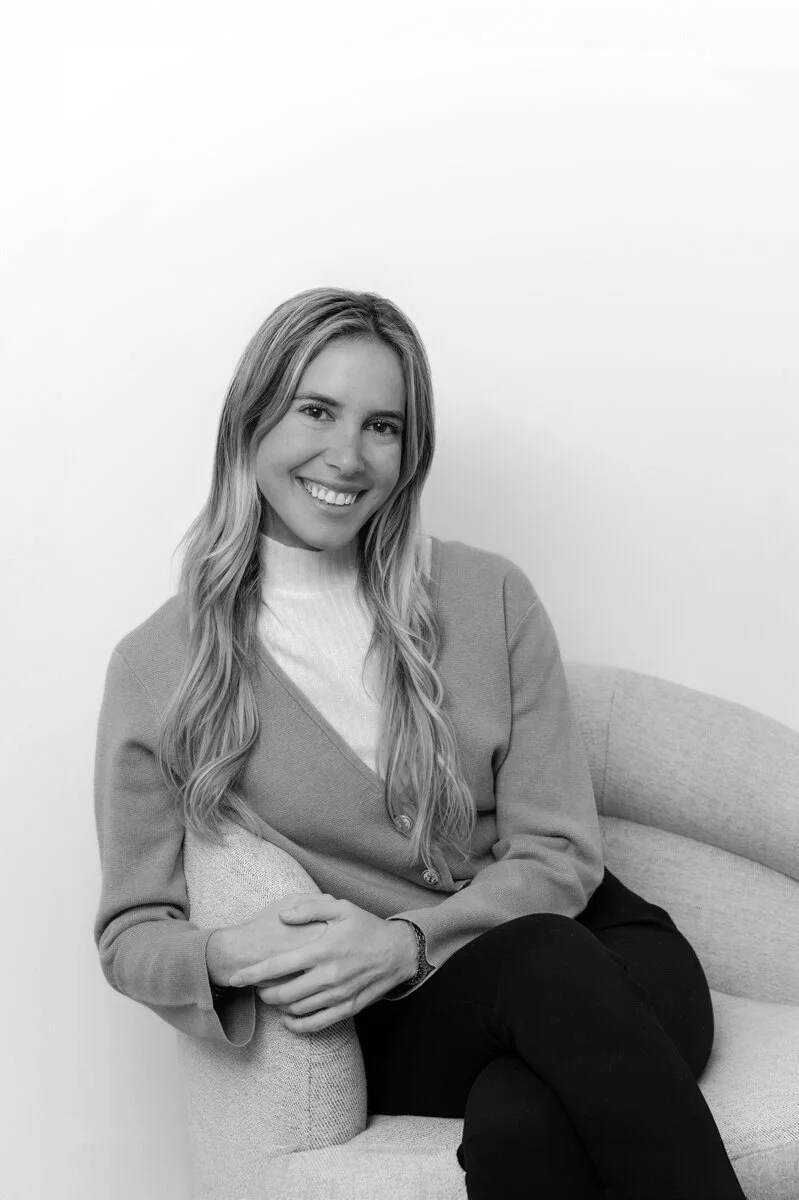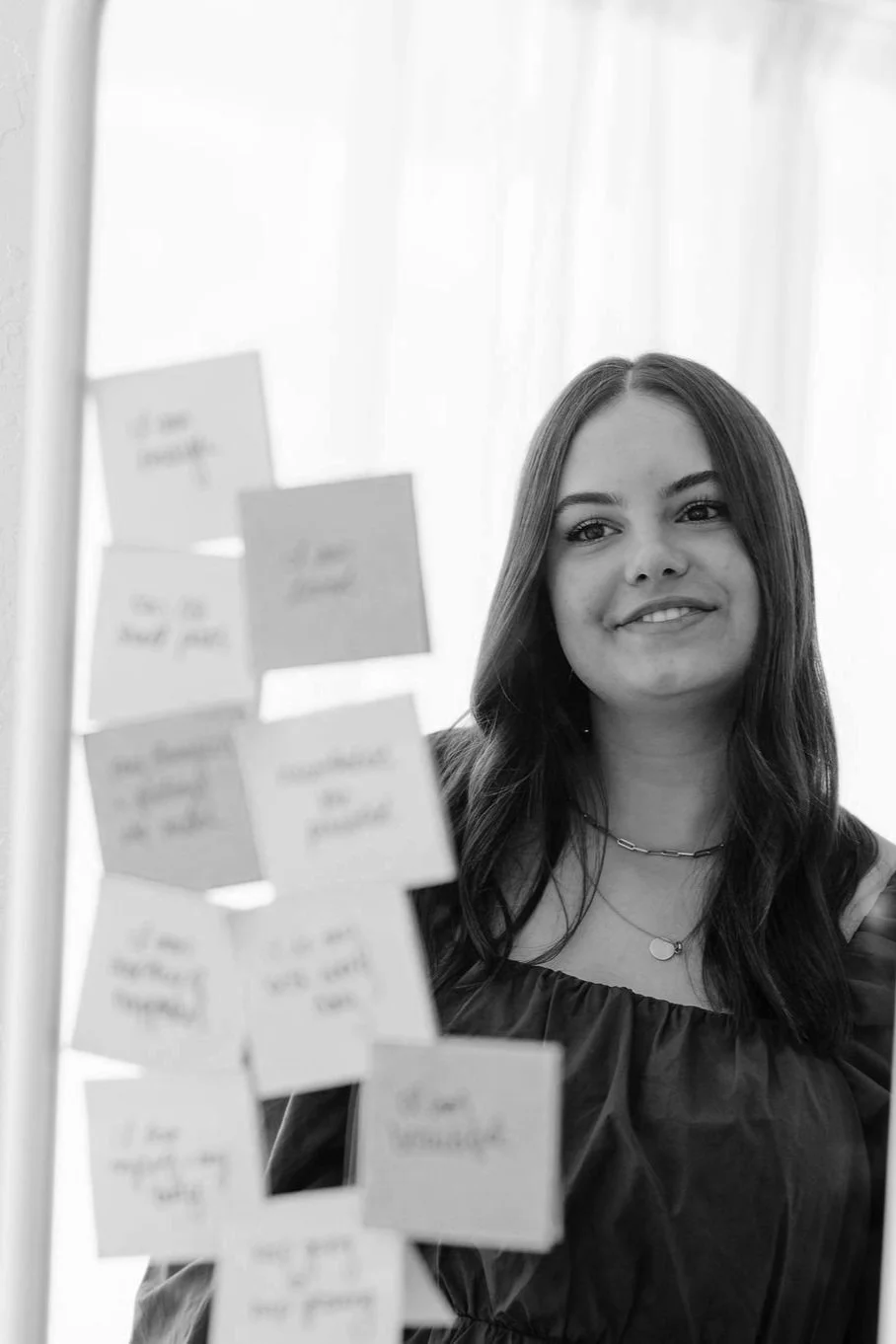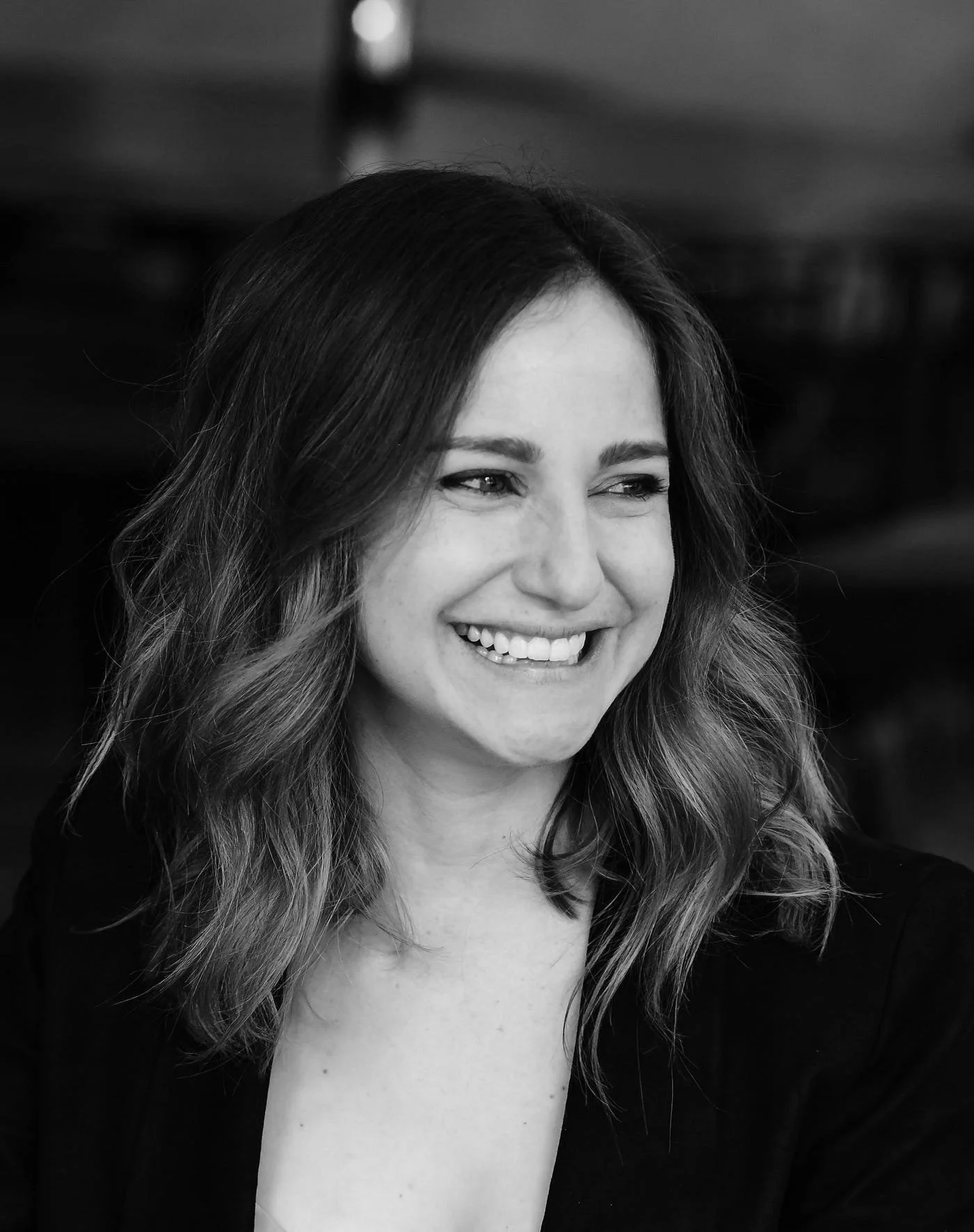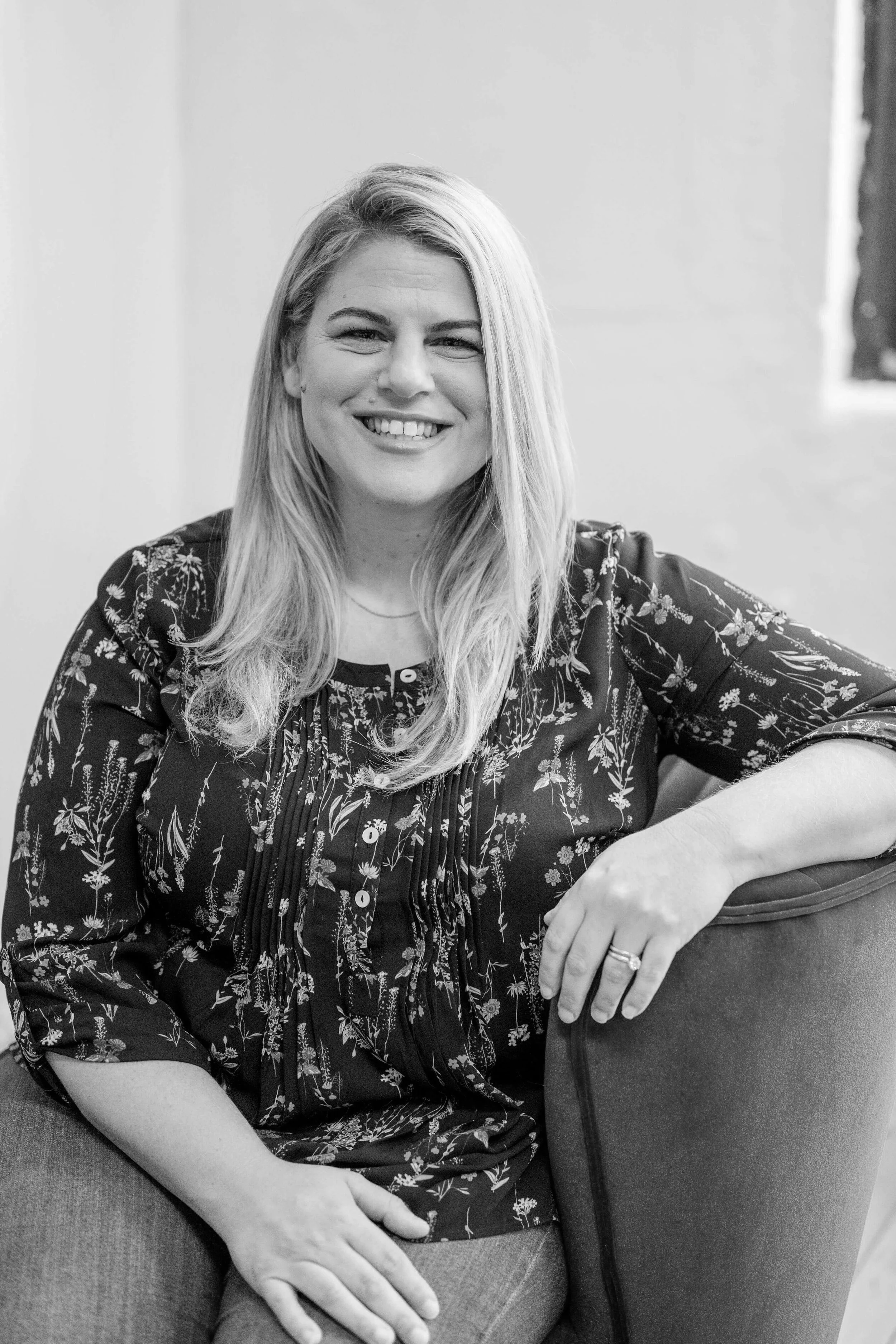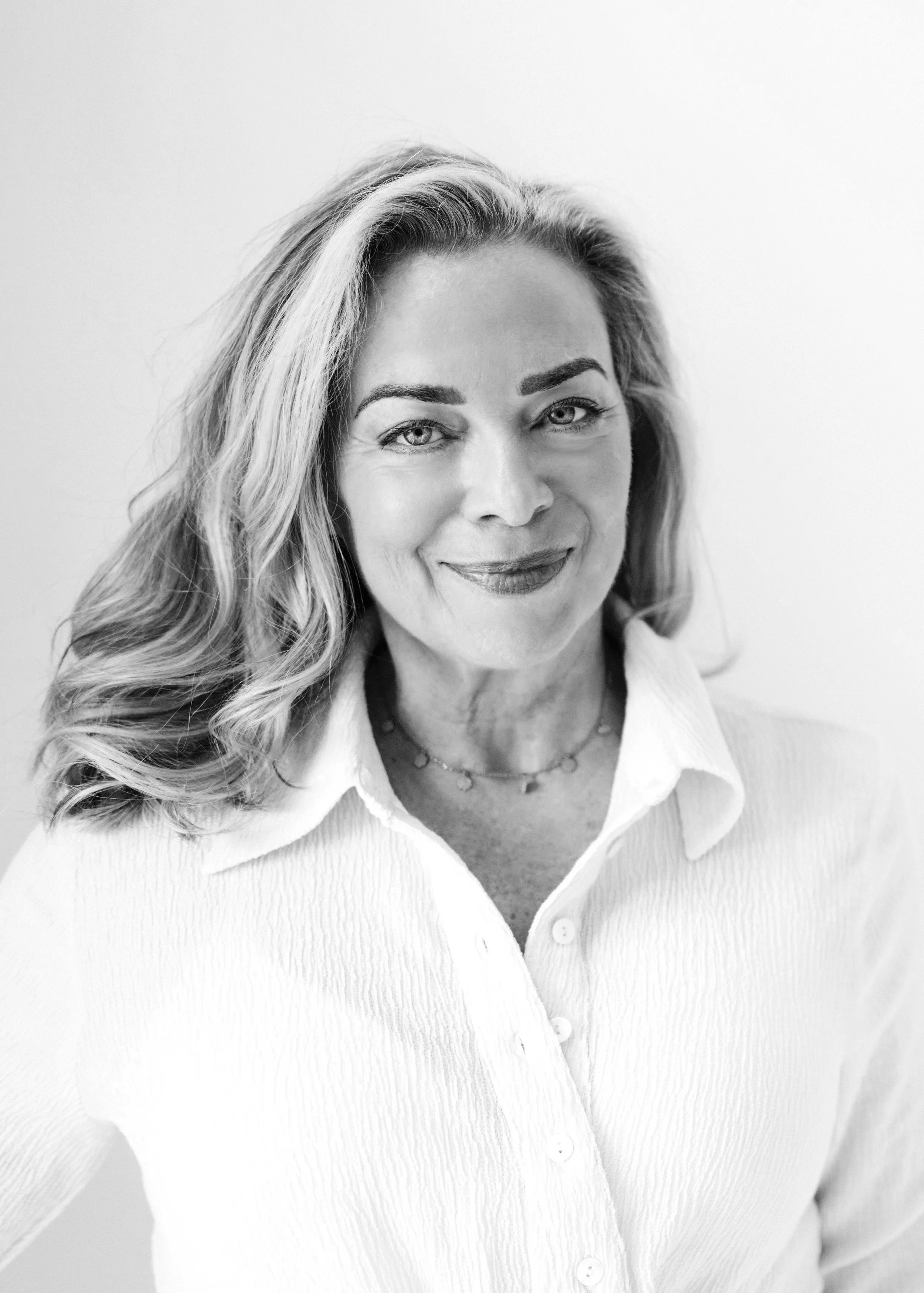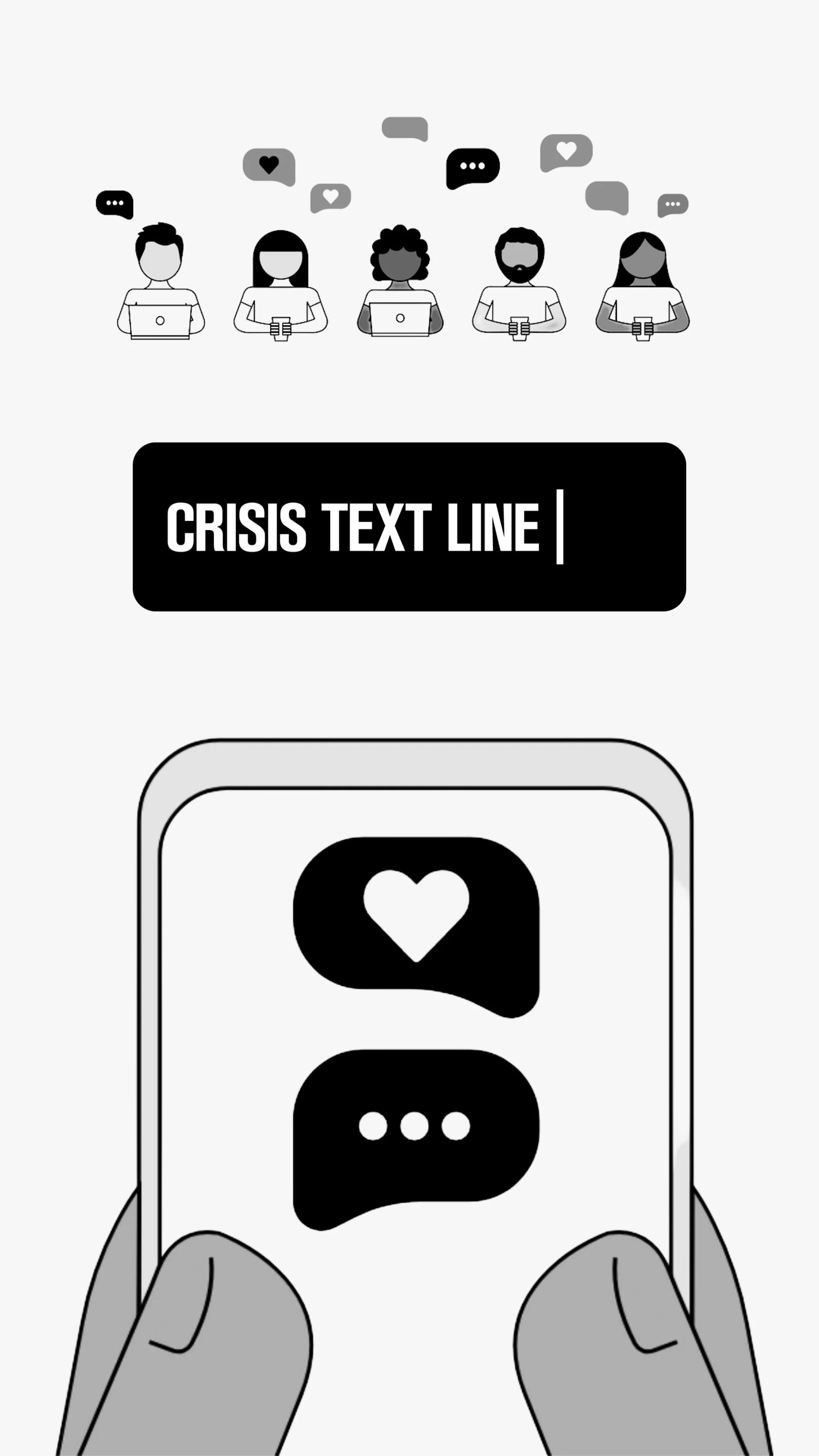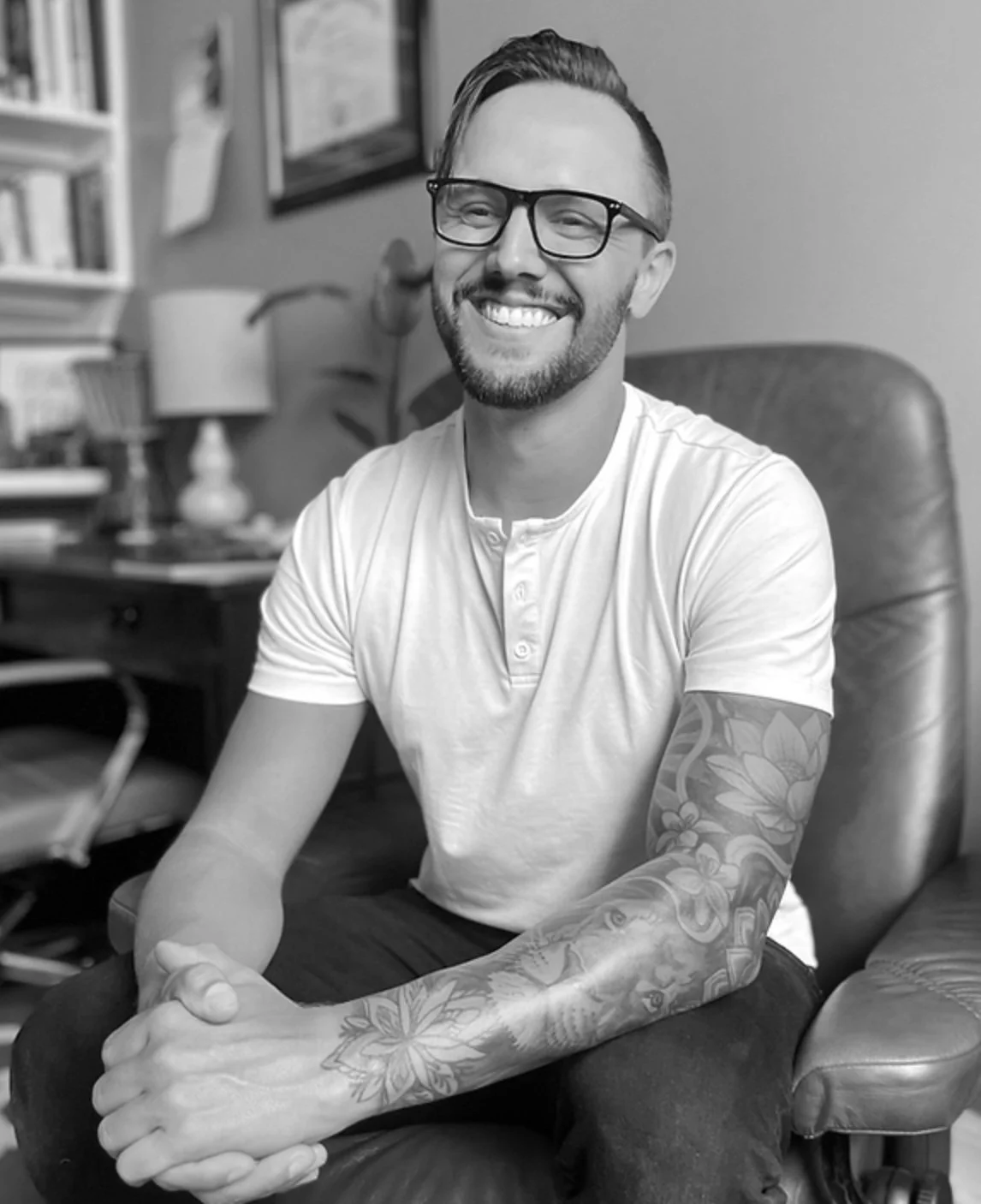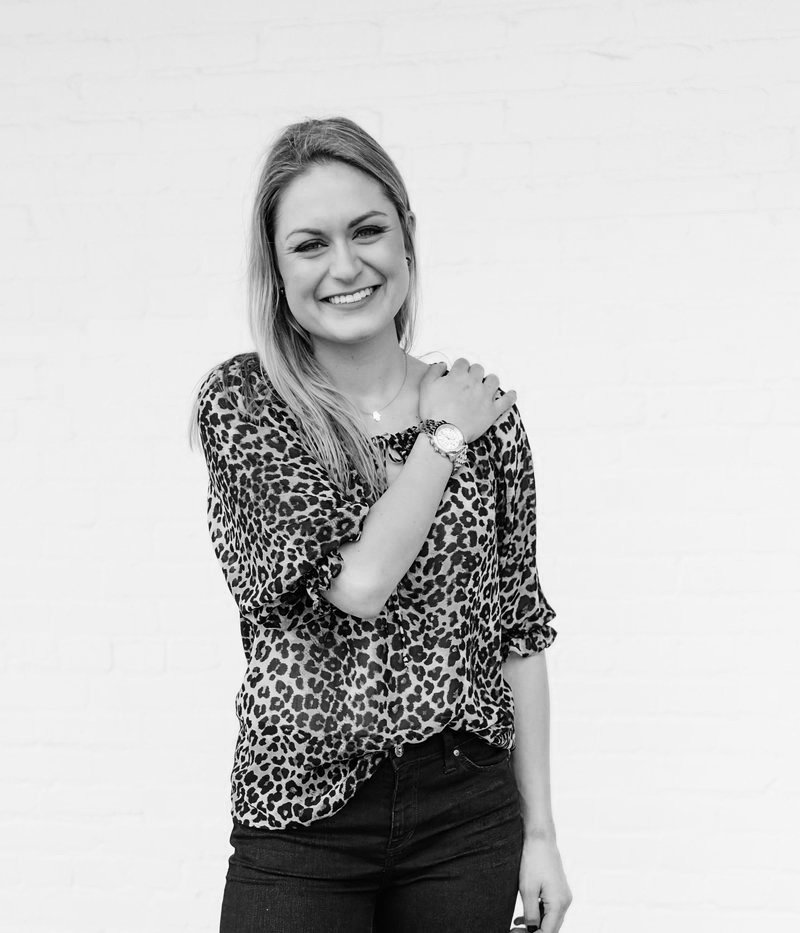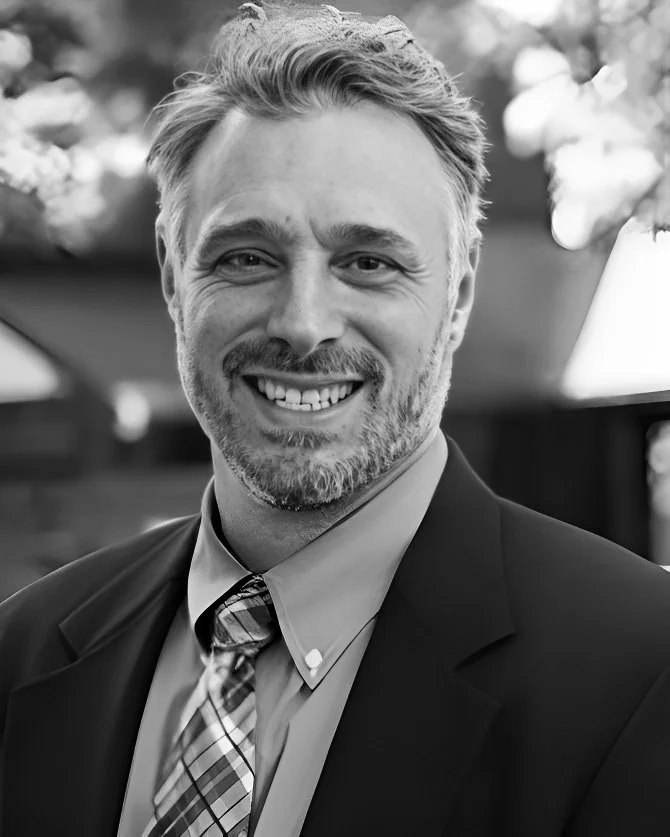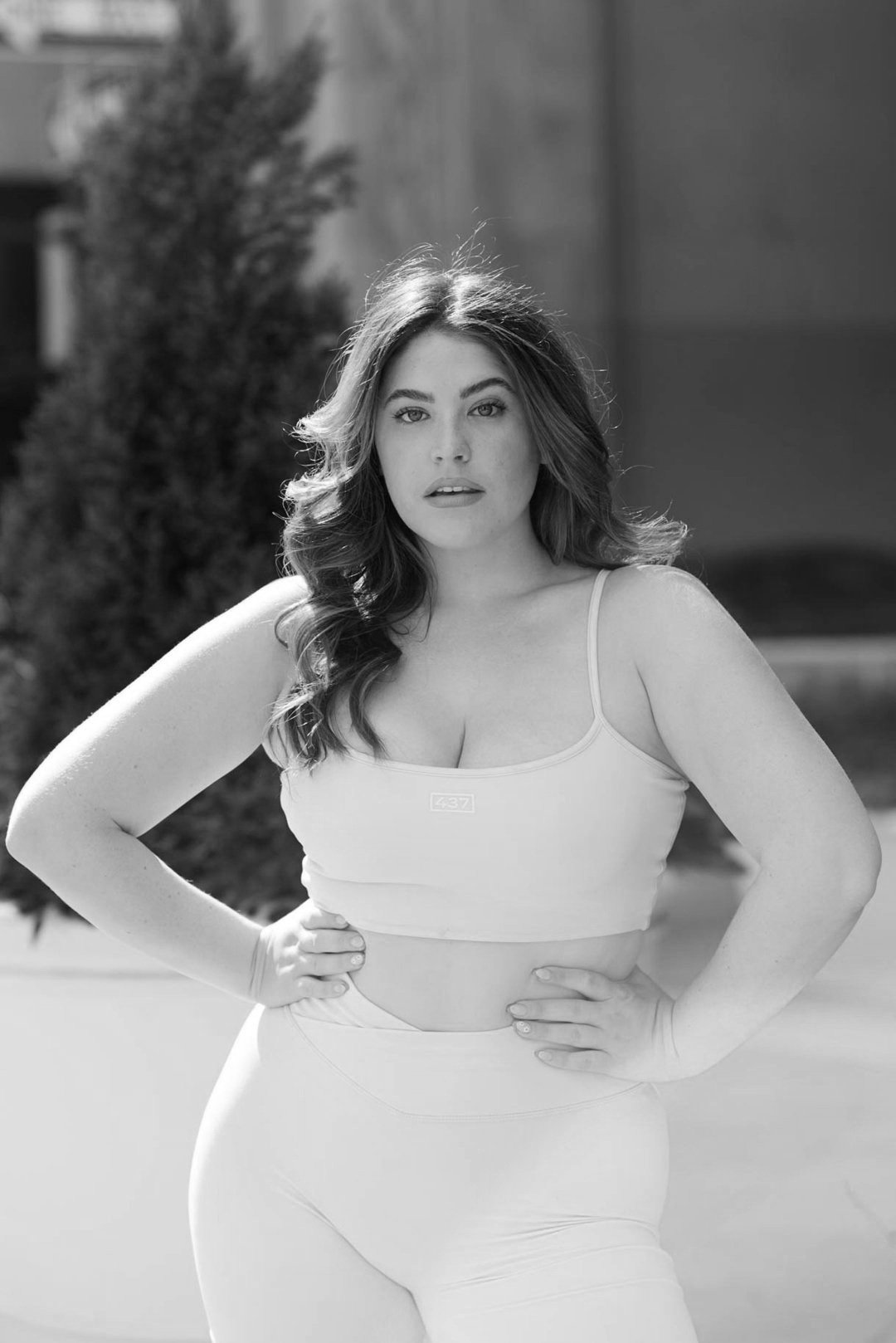110. AMA: Habit Tracking, Mental Health Book Recommendations, + Treatment Storytimes - SOLO EP
listen to this episode:
Tune in and subscribe on your favorite platform: Apple Podcasts | Spotify | Stitcher | Google Play | Radio Public | PocketCasts | Overcast | Breaker | Anchor
In today's ask me anything/Q+A/advice episode, I am answering your questions about advocating to your parents, knowing what type of therapy is right for you, hitting rock bottom, dealing with judgment, addressing the teen mental health crisis, supporting men struggling with their mental health, talking about mental health on social media, skills coaching, diary cards, troubled teen industry stories, reading recommendations and so much more!!
Mentioned In The Episode…
+ Anonymous topic submission form
+ John Oliver - Mental Health Care
+ Troubled Teen Industry Episodes: #64 Sydney Montana, #62 Evan Haines, #41 Daisye
+ 3East McLean Hospital (highly recommend this residential program)
SHOP GUEST RECOMMENDATIONS: https://amzn.to/3A69GOC
Episode Sponsors
🛋This week's episode is sponsored by Teen Counseling. Teen Counseling is an online therapy program with over 14,000 licensed therapists in their network offering support with depression, anxiety, relationships, trauma, and more via text, talk, and video counseling. Head to teencounseling.com/shepersisted to find a therapist today!
☕️This week's episode is brought to you by Nutpods. Shop their delicious Vegan, Gluten-Free, Non-GMO, Kosher, and Whole 30 creamers today and use code 'SHEPERSISTEDPODCAST' at checkout for 15% off your order.
About She Persisted (formerly Nevertheless, She Persisted)
After a year and a half of intensive treatment for severe depression and anxiety, 18-year-old Sadie recounts her journey by interviewing family members, professionals, and fellow teens to offer self-improvement tips, DBT education, and personal experiences. She Persisted is the reminder that someone else has been there too and your inspiration to live your life worth living.
a note: this is an automated transcription so please ignore any accidental misspellings!
[00:00:00] Sadie: Welcome to she persisted. I'm your host. Sadie sat in a 19 year old from the bay area, studying psychology at the university of pencils. She processed. It is the teen mental health podcast made for teenagers by a team. In each episode, I'll bring you authentic, accessible, and relatable conversations about every aspect of mental wellness you can expect.
[00:00:20] Evidence-based Tina proved resources, coping skills, including lots of DBT insights and education. Each piece of content you consume, she persisted offers you a safe space to feel validated and understood in your struggle while encouraging you to take ownership of your journey and build your life worth living.
[00:00:37] So let's dive in.
[00:00:41] Hello? Hello. Welcome back to she. Persisted. I am so excited. You're here today. We are doing a Q and a ask me anything advice episode with a bunch of questions that you guys submitted on Instagram. And then through our new anonymous question, asking form. So in today's show notes, I'll put a link to Google form.
[00:01:00] Don't have to give your name, your email, but you guys can now suggest topics, advice, things you want support with or questions to be featured in upcoming episodes and I'm going to be doing solo episodes, every three episodes. So there will be a lot more opportunities for you guys to ask your questions and yeah, I'm really excited for this.
[00:01:20] So, so many things to dive into in this week's episodes, we're just gonna dive right in, starting with advice, then we're gonna do some questions and then some rapid fire, random, not mental health related things at the end. So the first advice question is I had an eating disorder and ran constantly. Now that I'm recovered, I'm actually in love with competitive running as a high school student, but my dad restricts my mileage.
[00:01:43] How do I tell him that I'm not doing in an eating disorder Headspace anymore? And I really want to up my mileage for the sake of my athletic career. It's my passion.
[00:01:51] this is a great question. I actually answered this on Instagram stories. So you guys might have already seen this, but because you are trying to get an objective met here, which is increasing your mileage. I would use a deer man, which. The acronym from D B T, which stands for describe express assert reinforce, be mindful, act confident and negotiate.
[00:02:11] So you can change this to specifically fit your thoughts, feelings, et cetera, and make this effective with your dad. But here's an example of how I would do that. So for describing just the facts, I would say running used to be an unhealthy behavior for me and how much I ran used to be unhealthy the same time as runners train in a healthy way, they increase their mileage without compromising their health, expressing your emotions. You could say I'm so passionate about running and love. The community cross country is brought to me.
[00:02:38] It makes me so happy and brings me a great sense of pride to improve. I know how worried you are about me, and I understand why I really appreciate that you care so much for my wellbeing. For the assert you wanna ask something where your dad can respond in a yes or no question. So you could say something like, can I start to increase my mileage in a healthy way to progress in my training?
[00:02:58] So for the reinforcement, for how it benefits them, you could say, I would be happy to meet with a nutritionist to make sure I'm fueling my body appropriately and work with a coach to make sure I'm not running too much. Also I'd be open to check in with a therapist about how the increased mileage goes in communicating with you.
[00:03:14] If it's becoming unhealthy. For being mindful. You wanna stay present, use validating body language, make sure you're paying attention. You're in the moment. You're not distracted for acts confident. You don't want to over apologize. You're going to try to speak clearly and be confident in what you're saying.
[00:03:32] This is why I love the dear man scale. Because if you write it out beforehand, you're able to feel confident. You know what you're gonna say? You know what your ask is, and you can be a lot more effective. For negotiate, most likely you'll say this after he responds, you could say I'd be happy to do a slower training schedule and increase my mileage over a longer period of time to make sure this is a healthy transition.
[00:03:53] Another thing that comes to mind for the describe with the facts, you could pull up like a, I don't know, like. Running coach or Nike run club training plan that shows how they increase their mileage. So you're checking the facts on what is a healthy way to increase mileage. What's a healthy mileage range for your skill level, et cetera.
[00:04:11] So I hope that helps and yeah. Good luck. The next advice is hi Sadie. I have a podcast and a few people from school know about it and follow me on Instagram and stuff. I notice that I keep myself from posting content that I find will be useful for listeners, just because I'm worried about the judgment of my peers.
[00:04:28] Any advice on how to stop caring? This is really difficult. And I struggled with this a lot when I first started the podcast. If you don't know, I kind of kept the podcast, not a secret, but I didn't share it broadly for about a year. And that meant that I could really find my voice. I felt really confident in the way that I was telling my story, because talking about your mental health, having a podcast is really vulnerable, and it's kind of scary to talk about these things and share them with people that you care about, especially if you're worried about rejection.
[00:04:57] I definitely recommend giving yourself a grace period to feel really confident about the content that you're putting out. I think that helps a ton. I would also say what I do, especially the beginning when I was like the people that are seeing this might judge me. They might not understand my perspective.
[00:05:14] I reminded myself why I host she persisted and why I started the podcast, which is that if I could help one teenager that was struggling. Everything that I went through with my own mental health was so worth it and everything I was doing with the podcast was so worth it to help someone feel less pain and suffer less than I did when I went through my mental health journey.
[00:05:33] So remind yourself of your, why remind yourself, who you're doing this for, which is your listeners, your audience, your community, and not the people from your school. I think it's also really important to remember that. your family and friends likely aren't your target audience? Like? Yes. Occasionally a family or friend will listen to the podcast, but the people that I'm trying to reach are teenagers struggling with their mental health parents of teens, struggling with their mental health.
[00:05:55] And that doesn't necessarily mean it's by friends and family members and that's okay. So the content you're making, isn't supposed to resonate a hundred percent with your friends and family. It's supposed to resonate with a different audience. So if it doesn't resonate or they're not your most. Active listeners almost take that as an encouraging thing, because you're not trying to reach them as your target audience.
[00:06:16] So yeah, I hope that helps also, I would add a lot of self validation because it's very difficult to put things on the internet. It's very difficult to host a podcast, share all these things, give yourself some self-care distraction, all of the things to take care of the emotions that come up with that.
[00:06:32] And yeah. If people are being rude, if they're bullying, if it's not effective to be in that relationship, block them, remove them from your podcast account. Kind of take space from that friendship because likely you're doing this for a really great reason, and there's no reason that people should be being mean or judgemental about your podcast.
[00:06:52] A fun little behind the scenes of today's episode is I'm waiting to go on ID me to confirm my documents so I can pay my taxes. so question number one. How do you know what type of therapy is best for you? I think there are two.
[00:07:08] Things I would mention here, I would say one, doing a little bit of research on what therapies have been shown to be effective for what you're struggling with. So there are different types of therapies that will be better for OCD, like C, B T exposure therapy, things like depression, which is gonna be things like D B T.
[00:07:24] Eating disorders. There are so many different types of therapies and there's been lots of research on what works for each challenge you are experiencing. So I would first do some research. You don't have to know this, answer yourself, but ask your doctor, ask a psychiatrist ask your therapist and kind of understand what the research is because.
[00:07:44] You'll have a better chance of finding therapy to be helpful and effective if it's been proven to work for what you're struggling with. The second thing I would say is trial and error. You're not gonna know what works and what is effective until you truly give it a shot and give it your full energy. Give it your full vulnerability. Really give that therapist and approach a good chance. So I would say, try talk therapy, try group therapy, try exposure, try D B T try CBT, try these different things.
[00:08:10] And that doesn't necessarily mean spending like six months with every single different therapy modality approach, but try exposure with your anxiety, try distress tolerance, try C, B T to break the, the cycle between behaviors, thoughts, and emotions. So try these different things in a small way with the things that you are experiencing and see what works.
[00:08:31] I would also say that there are two things worth mentioning that are the biggest determinants of success in therapy. One is the therapeutic relationship. So if you feel like you don't feel supported by your therapist, if you don't feel seen, you don't feel heard, if you feel like they're not addressing what you want to maybe try working with a different therapist.
[00:08:48] The other thing is being invested in therapy. And for me that meant seeing the wisdom in D B T and therapy, which meant that I understood logically that it was proven to work. It would help with depression, that it would decrease suicidal ideation and urges and all the thi these things, and also emotionally being invested.
[00:09:06] So trusting clinicians to help me and understand that they wanted me to get better. Having enough self-compassion to want to live a life worth living for myself. So I would say those two things are really important above all is having a good therapeutic relationship and personally being invested and wanting the outcome that you're looking for.
[00:09:25] And then from there, trial and error and do research on what works for what you are hoping to focus on. Next question is how do you know when you've hit your lowest and what to you do when you get there?
[00:09:37] So this is another one I answered on Instagram. And so I will recap what I said there. This is a really difficult question and something really difficult to navigate. I think one thing is that hindsight really is 2020. It's hard to know when you are in rock bottom. Until you are pulled yourself out of that because things can always get worse.
[00:09:55] They can always get better. And so it's not until you start that up to where trajectory that you're like, wow, that was my lowest point. I, I also think that's true for your mood. Like you don't necessarily always realize how bad your beliefs, emotions, urges, et cetera, are until you're no longer feeling that way.
[00:10:10] So I think part of being really clear, like that was my rock bottom comes from being out of that point. I would also say knowing that hindsight is 2020 compare your current moods emotions, thoughts to what they were previously, what you remember feeling when you did certain activities, how excited you were to go to school or go to activities or all of these things that you now are feeling a difference with.
[00:10:31] That's a good example for depress. But yeah. Compare your current mood to what it previously was. Another thing that I would say rings true for being at rock bottom and kind of really just at the low is that you are really emotionally exhausted. Like you just know that you can't continue to operate the way that you are.
[00:10:50] Like something has to give, or you won't be able to keep functioning the way that you are like go getting through the day, getting through the moment is so emotionally exhausting and difficult that it's just not possible to continue in this way. So you understand that your trajectory isn't sustainable.
[00:11:06] You can't keep going this way. I think that's another sign that you were at your lowest and then. The last thing that I'll mention as a sign to know that maybe you are at your lowest point, is that the things that are important to you really aren't possible anymore. So maybe that's school attendance.
[00:11:23] You're really not showing up for school or you're leaving early. Maybe you're not able to complete assignments. Maybe you're not able to go to your after school activities or. Boards, because you're in so many therapy appointments or you just don't have the energy, maybe your relationships Aren unhealthy, maybe you're isolating more.
[00:11:38] So these things that you care about and that you want in your life, you just can't show up to because of your mental health
[00:11:44] so what to do after, like, I, I feel like I'm at my lowest point, I want something to shift. I don't wanna feel like this anymore. The first thing is to ask for help. I don't really know if it's a reasonable expectation to think that things will change. If you don't have people in your corner there to support you, relationships are so essential for us to, to function and be successful and just operate in society.
[00:12:07] And especially when you're going through a rough season, a mental health challenge, having people in your corner, whether it's Friends, family members, a therapist, a teacher, you trust a school counselor. Any of those people, having them in your corner is so important because they're not only there to offer that support the validation, but also they're able to harness all of the information that they have from their life, whether it's from personal experiences or referring you to resources, getting professional support, because you're not expected to know how to navigate this.
[00:12:35] They aren't either. That's why it really takes a village and a community to. Pull yourself out of this point. So ask for help, talk to your parents. If that doesn't feel safe, talk to a counselor, talk to your pediatrician, talk to a teacher. You trust, talk to a therapist, get support, understand what your resources are.
[00:12:53] And then once you have some professionals looped in, they'll help guide you on that trajectory of like, we're gonna try this to shift this emotion. We're gonna try this. Whatever it is. Book podcast, conversation with your parents intervention, as far as school to try and shift what you're experiencing.
[00:13:10] The next thing is to get really clear on how you want things to change. Do you want to feel different? Do you want to not have urges? Do you want to have different behaviors? Do you want your relationships to feel a different way? So you want to understand what the life worth living is that you're working towards.
[00:13:25] It's really difficult to work towards the idea of getting better or being happy. If you don't know what that feels like. If you don't understand what that goal is, if it's like abstract and very vague. And I was in that exact position. But if you get super clear, like write it out, what is my life worth living look like?
[00:13:43] What relationships do I have? How do I feel in those relationships? What are my emotions on a day to day basis? Am I struggling with urges? Am I struggling with a diagnosis? Am I needing skills coaching every single night, or am I only going to therapy? Whatever frequency feels good to you, what hobbies do I engage in?
[00:14:00] What things do I do to bring myself joy, et cetera, having that goal to work towards, and then working backwards, like what steps do I need to take to get? There can be a lot more encouraging and reinforcing in this mental health journey. And then once you kind of have that clarity, I am a huge fan of tracking the things that you wanna change on a daily basis.
[00:14:19] So tracking the emotions, the thoughts, the behaviors, the urges, I am always tracking my sleep. I'm tracking, studying during the school year. I'm tracking. If I'm reading, I'm tracking. If I'm getting exercise, I'm tracking my meals, not like what I'm eating, but like, am I making sure I'm getting all my meals and am I snacking really late at night versus like staying consistent throughout the day?
[00:14:38] All of these little things that help me feel my best. I'm tracking to make sure that I'm doing on a daily basis.
[00:14:44] Another tip is to do the opposite of what you feel. We talked about this in last week's episode with professor Russo, about how, when you've been depressed or anxious for a really long time, when you've been struggling for a really long time, your emotions don't always serve you. Sometimes they're telling you to do things that aren't effective, like isolate and stay in bed and avoid.
[00:15:03] So do the opposite of what those. Those emotions and feelings are telling you to do get out of bed. Don't isolate, dive into school, dive into passion projects and kind of leaning into that. C B T triangle. You change your behaviors, then you change your thoughts. Then you change your emotions. And so kind of breaking that cycle from the behaviors perspective, by doing the opposite of the behaviors that your depression wants you to do, or anxiety or OCD or eating disorder, et cetera, they they're all the one.
[00:15:31] And the same with a lot of these interventions. My last tip that I wanna give you is to take it day by day. Take it moment by moment. If day by day is too big of a goal too big of a, a, a a time period to experience. I totally get that and give yourself a lot of self validation and self care. These feelings are really overwhelming.
[00:15:51] This is a huge shift you're trying to make. You're trying to pull yourself again out of rock bottom and make huge changes across your life. Remind yourself. This is difficult. Of course, it's hard. Of course it's exhausting. Of course. It's overwhelming. Use your skills, lots of distractions, self care, doing things you love, engaging in relationships that make you feel good.
[00:16:11] And yet, remember this isn't easy, an easy journey. It isn't supposed to be easy, so it's okay. That it's difficult. And how do you support yourself through doing something difficult?
[00:16:20] Two days episode is brought to you by teen counseling. We talked about therapy. We talked about treatment. Teen counseling is better helps version of their program, but for teenagers, they have 14,000 licensed therapists in your network. It is virtual therapy via talk, text, and video counseling. What you do is you go to teen counseling.com/she persisted.
[00:16:41] You are going to fill out a quick survey about what you're hoping to work on in therapy. So whether that is depression, anxiety, trauma, relationships, school, stress, burnout, anything, and everything. Fill it out in that survey. They can match you with a therapist that specializes in that area.
[00:16:55] And if you are under 18, you will put in a parent or guardians email to give consent to treatment and provide payment. I tried it myself. None of your information is disclosed. all it says is Sadie or whatever your name is, is hoping to work with a counselor from teen counseling.
[00:17:09] please click the link to learn more and give consent, provide payment, et cetera. But none of your information from that survey is shared because HIPAA is enacted. And then from there you start meeting with a therapist, it's great because you don't have to worry about going into the office and meeting with the provider, but also you can adjust it based on what level of support you're looking for. So maybe you just want tech support. Maybe you just want phone support, maybe you want weekly video sessions, et cetera. So whatever level of support you're looking for teen counseling can help you out.
[00:17:38] Again, teen counseling.com/she persisted link is in the show notes. Start your therapy journey. Find a new therapist today by going to teen counseling.com/she persisted
[00:17:50] Good news. I got verified by the IRS. Okay. Continuing this Q and a. The next question is how can we better support men taking care of their mental health? So there are so many things here. I think, as a society, men are at a deficit when it comes to.
[00:18:06] Being able to express their emotions. There's their feelings. There's a lot of stigma saying things like take it like a man or don't cry, or don't be like a girl. All of these things that you've heard in TV shows are hopefully not, but in interactions there is a component of psychological research, I think, which is, is worth mentioning, which is that females are more adept to understanding facial cues and body language.
[00:18:29] They are more likely to confer with their friends and talk about their emotions, their feeling. They are more prone to listening and, and all of these kinds of things that I think also add to this kind of difference in male versus female mental health challenges. So being aware of that, I would say supporting a man that is struggling with their mental health, be aware that talking about these emotions, these feelings, these thoughts, whatever it is is probably already difficult. That itself is a new experience in addition to the emotions and feelings that they're navigating. So kind of being aware, giving them extra grace there.
[00:19:05] I would also say validation is key. So validating is the idea that you can create space for someone's emotional experience without necessarily agreeing with their behaviors or their actions. But you're saying, I see you're in pain. I see. You're not okay. Like you must be, would be really struggling.
[00:19:20] I totally understand why you feel that way, et cetera. Really being as validating as possible. And then anything that you would do with a female, these things are helpful to everyone. So checking in on them being a, a resource that they can go to, to laugh and feel better and feel supported and feel validated.
[00:19:40] Treat every conversation like they're coming to you with a big mental health challenge. They know what to expect if they go to you for support. So always be validating, always be supportive, always be open to them, expressing their emotions that they know. If I'm really struggling, I have someone I can go to, to be supported.
[00:19:57] But yeah, I think to kind of wrap that up, be aware that there might already be more anxiety about expressing these emotions. They're already overcoming that challenge in addition to what they're experiencing. So throw an extra validation and then do what you would normally do, support them as best as possible and, and try and be a good friend, parent family member, whatever the relationship is.
[00:20:19] The next question is who inspired you while you were in recovery? This is hard. I think I felt so much disconnect. I felt so alone in what I was experiencing that I didn't think I could relate to anyone that was either like recovered or in recovery or in the process. I was really of the mindset that no one has ever been in as much pain as I have.
[00:20:40] No one will get it. Nothing will work. This is just how I'm meant to be. So I think that made it difficult for me to look to people as a role model. Since coming out of my, the lowest point, I find a lot of inspiration in people in the mental health field. So different therapists that I've had
[00:20:57] Different, so many different people that I've talked to on the podcast and what they've done in the mental health field. I found a lot of validation and support from people that were also struggling and also at their lowest. But I do wish that I would've done more to. Understand other people's stories of healing from depression, healing, from anxiety as a teen, because I think that would've been really inspiring and reinforcing, which is one of the reasons I started the podcast.
[00:21:23] Cause I didn't feel like there was that voice out there. So. Hopefully my, my story, not to like toot my own horn, but I hope that the teens that I've been able to have on the podcast, the individuals that have been able to share their stories, this can be a resource that can be used as inspiration for teens that are struggling.
[00:21:41] But I really do think it does take that first step, which I struggled with, which is understanding that other people have felt the same way you have. And recovery is possible even for you. That's that the next question is how could we respond as a nation to the teen mental health crisis? So, so, so many things here.
[00:22:01] I think there are small things like how we treat teens. When they say they're struggling. When they say they have anxiety, when they say they have depression, when they say they need help, how we respond to them, being more validating and not dismissing those emotions. I think as a society, we need way more emotion, education in schools.
[00:22:19] We need to teach kids how to deal. Distress, how to deal with anger and sadness and shame and express those emotions and cope with them in a healthy way. We need to teach kids what signs to be aware of when it comes to depression and anxiety and O C D and eating disorders and what skills they can use to kind of nip those symptoms and behaviors in the butt earlier on in the process.
[00:22:41] We need way more widespread therapy and mental health resources. There was a recent episode of John Oliver, all about the mental health crisis and the lack of therapy, resources, and mental healthcare resources in the us, the, the wait list, the The lack of beds and inpatient programs, all of these different things, we need more therapists, we need more resources.
[00:23:02] We need more readily accessible mental healthcare. But I think when it comes to what you can do, you can be the person that you wish you had as a teen. When you are struggling, be validating, be supportive, teach other the others, the skills that you now know about how to navigate a panic attack, how to tolerate distress after, after a conflict with your parents, whatever it is.
[00:23:23] Be that insight and information and support that you wish you had. The next question is how can we be inclusive and thoughtful about mental health on social media? So I'm gonna give two different things here. I think one, I'm gonna talk about how you can be a critical consumer for your own mental health.
[00:23:40] And then two as a creator, like talking about mental health on social media. As a consumer, you have a lot of power, the algorithms, whether it's TikTok or Instagram or whatever you're on are very good. If you are muting pages that make you feel bad, if you're unfollowing people in your community, community that you find yourself comparing to, or feeling inferior to, or triggering thoughts, the algorithm will pick up on that and your feed will become a place that brings you joy and more positive emotions. My best example of this is my explore page because my explore page. Is all puppies and dog videos, plus this random girl's outfit, but all puppies and nail videos and things that make me happy because the algorithm knows that's what I wanna see.
[00:24:26] So you can be a critical consumer. You can make your social media a place that doesn't have to be negative. And it takes wanting to do that. It takes muting posts. It takes non engaging with posts that make you feel bad about yourself, et cetera. So that would be my first tip is as a consumer be aware of what emotions arise when you're scrolling through your feeds, what creators make you feel better?
[00:24:47] What make you feel worse and adjusting your engagement to make yourself feel better? As a creator on social media, talking about mental health can be very difficult. There's a fine line between being vulnerable and open and having the conversation about mental health, which is so important to decrease stigma and triggering other people that are struggling.
[00:25:11] Being invalidating, not necessarily saying things that are correct or factual, et cetera. So I think there are small things like for me, I'm never gonna say I I'm a psychologist like this whole episode is, is my opinion. It's not professional advice. This is not a substitute for therapy or an appointment with a psychiatrist, etcetera.
[00:25:29] So being really clear that these are opinions, these are experiences, they're not professional advice and that's a huge disclaimer to make. And I think that's something that kind of gets lost sometimes on Instagram and. I would also say something that I've done as a creator is I try to focus a lot on the actionable steps and the positive. I try not to dwell so much on the, the negative thoughts or the negative experiences or the emotions or the behaviors. I really try to emphasize what steps you can take, what skills you can use, what conversations you can have, what resources are available, because I truly think that that is what will help people shift what they're feeling in addition to just getting valid.
[00:26:04] I would also say it depends on where you are at with what triggers you as a creator. So if you were like in the thick of it, struggling with your mental health right now, When I was in the thick of it, the idea of immersing myself in the mental health content creation world.
[00:26:19] Would've been a really bad idea because I would have no break from these thoughts and feelings and emotions that were causing me so much distress. Now it's something where either I am interested, I feel passionate. I feel creative, but it isn't tied to these negative personal emotions. And just adding to the burden of what I'm experiencing.
[00:26:38] Kind of understanding your boundaries as far as content creation, what makes you feel good? What doesn't, what point are you at in your own mental health journey to give advice and to immerse yourself in that community?
[00:26:49] But, yeah, it's, it's really, I don't know if I can even speak to this as an expert in any way or even give advice here, but from what I've observed, I found that I like to give tangible advice rather than just focusing on my own personal experiences that could be triggering for others because that's not really gonna help them also huge emphasis on not a professional, not a substitute for therapy, and then being mindful of what emotions come up for.
[00:27:15] You.
[00:27:15] Oh, wait, one more thing I'm gonna add. There is there's a couple of language shifts that I've made, especially since I've started using the podcast. I like to use the word treatment. Whenever I talk about mental healthcare. I won't say like being like institutionalized or being. Locked away, or sometimes I'll say hospitalized, cuz that's kind of the term, but using treatment I think is a more compassionate term that you can use.
[00:27:37] And it's just as accurate. I also say mental health challenges a lot more than I say, mental disorder or mental illness, because I think a lot of people struggle, even if they haven't been diagnosed or don't meet the criteria for diagnosis, the same skills can be helpful for them. So that's a piece of language that I try to implement a lot.
[00:27:54] And yeah, I think another thing that causes a lot of challenges on social media is self diagnosing and I'll link a bustle article that I got to contribute, be interviewed for which was literally crazy and so exciting, but she talks about the idea of self diagnosing and it's two sides of a coin.
[00:28:09] One is that gen Z is talking about mental health more than ever, which is really great, but there's a, a lot also a lot of self diagnosis and. What I feel the issue is with self diagnosis is there's this disconnect to identifying the feelings, thoughts, and behaviors, but then taking action. One of the purposes of getting a diagnosis is to get treatment, to have insurance cover mental health treatment and understand what treatment you should do based on what the evidence shows is helpful for depression versus anxiety versus OCD.
[00:28:39] Like we talked at the beginning of this question session. There's this disconnect of diagnosing getting the validation, like something is not okay, and this is the label for it, but then what steps do you take? Okay, so that's my thoughts there. Next question is, is skills coaching always supposed to be a part of D B T?
[00:28:57] I have them, I read the manual, but I don't see any mention of discontinuation I'm in stage two, but I hope it does not LOL because I get so much use. Not as often as before, because I'm not in crisis all the time, but it does still help. Completely agree with you. I don't even know what stage of DBT I'm on right now.
[00:29:14] If you are not, haven't done D B T DBT since for dialectical behavioral therapy. It, like I mentioned is a type of therapy for depression and anxiety and lots of things, but skills coaching is a part of. Process where between sessions, you can call your therapist and get coached on what skills to use in a crisis moment.
[00:29:33] You get support from your therapist. It's amazing. It's a great resource. It literally saved my life multiple times the beginning of D B T treatment. And it's something. I still use My use of skills coaching has definitely changed. Like it's now more to check myself, have I been effective with the skills I'm using?
[00:29:51] Can I just be checked here? Like, am I totally in the wrong and being so willful and ineffective in this argument with like my sister or am I kind of in the right here? And I'm just not being as effective as I could be in this relationship. Am I so wrong here? Am. Is what this person's saying is true, or can I do some self-validation here?
[00:30:08] That's kind of how I more use skills coaching now, more with conflicts. And when really big emotions come up, but at the beginning, like stage one, D V T when you're in crisis mode, a lot of the times it's because of urges, behaviors, really harmful thoughts, that kind of stuff. So I have not read the manual.
[00:30:24] I don't know exactly what the. Literature says on skills coaching. But my thoughts here is that if you are continuing to grow and evolve in the way you use skills coaching, like you mentioned, like you're no longer using it daily, you're no longer using it because you're always in crisis. If your use of skills coaching is growing along with you, I see no reason why you would stop.
[00:30:47] There are tons of different outpatient therapists that aren't DBT therapists that offer text and call support to their clients throughout the. And so, I don't know why D B T wouldn't do the same thing over the long term. If it's something that's effective for you, if you're not using it as a crutch, instead of being more independent with your skills usage.
[00:31:05] So if it, if it's working, if it's evolving with you, if it's a great resource, why stop it? Why fix what isn't broken? But yeah, I love skills skills, coaching. It's one of my favorite parts of D B T, and I highly recommend. And if. Our starting D B T you're starting skills coaching, or if you ever feel the need to call a help line or a crisis line, my tip there is to practice calling and get that first time out of the way before you're in crisis mode.
[00:31:33] So. Multiple times when I've started with a new therapist. My first assignment during the first week will be like, call me once or twice and tell me something good that happened. Tell me something mediocre that happened so that you don't have that anxiety of, oh my God. I have to call. And what is my therapist gonna say?
[00:31:49] What if it's so awkward? I don't wanna do this. I've never done this before. So. If it's a crisis line, maybe text, send a text about feeling shame or feeling anxiety. And then next time when you're like full blown panic attack, you're like, I've done this before. It was helpful. I got the support I needed. I feel completely confident in advocating for this help and dialing this number.
[00:32:10] So that is a good tip to utilize. Same thing for like, I'm going to a counselor going to a teacher asking for help, build that muscle of getting the support you need before you're in full bone crisis mode and have another challenge to overcome when you're just so overwhelmed by emotion and crisis.
[00:32:27] Today's episode is brought to you by nut pods. Is it too early to have pumpkin spice creamer? I'm gonna say no, because I just ordered some and it's end of August. Almost fall. Right? Right. So nut pods creamers are whole 30 kosher, non GMO vegan, gluten free. They are delicious. They just came out with a collaboration with Chamberlain coffee and it features three flavors, caramel, French, vanilla, and sweet cream.
[00:32:51] My favorites are vanilla and sweet. Really excited to try the pumpkin spice. I am a huge coffee person, but only one cup per day because otherwise I get too much anxiety, but I love starting my morning with a cup of coffee. I look forward to it. It's one of my favorite parts of my day. And what I love about Nutpods is that because it's plant based, you can buy multiple containers and you don't have to keep them refrigerated until you open them. This is the greatest hack for your dorm room, because you have very limited fridge base and storage, and yet you can still have an amazing delicious cup of coffee. So if you would like to check out Nutpods, you can use the link in today's show notes or use code. She persisted podcast at checkout for 15% off your order. Again, that is code she persisted podcast at checkout for 15% off your order, the French vanilla is amazing. Oh, sweetened, make sure you get sweetened unless you like unsweetened because they have those also, but sheep resisted podcast at checkout 15% off.
[00:33:41] You'll think me later.
[00:33:43] The next question is also D B T related. And it is when did you know it was time to switch over from diary cards and or skills coaching, or maybe you still use them? I still use them if you're watching this on YouTube, I have my habit tracker. I love tracking the behaviors and emotions that I wanna increase or decrease. Now it's more things like reading or getting outside and taking a walk studying a certain number of hours every week for school. Once we're back in the school routine, posting talks for the podcast, because that's something I have to always remind myself to do.
[00:34:17] The tracking that I'm doing now is different from what it first was, which is like suicidal ideation, urges, intense emotions, conflicts, negative thoughts versus now it's more like, what do I wanna increase and get better at? But I still love diary cards. I do a tracker in a bullet journal now rather than a typical D B T diary card.
[00:34:37] And I love that because it feels more natural. I put it in my planner. It's more integrated into my lifestyle. I'm not pulling out like this D B T therapy tracking my skills usage and to satellite at school, I'm just doing my planner and my diary and my habit tracker. So it feels a lot more natural and less clinical, but I can still get the benefits of track.
[00:35:02] And I just touched on skills, coaching, still, something I use when I need it. It's a lot less often than it was the beginning and be like once or twice a month at the most, but it's still something I use when I am struggling or when I'm like, I could use some guidance here. I have tried navigating something by myself and I think getting support from a therapist would be helpful.
[00:35:24] I'll do skills coaching or I'll track it in my habit tracker and bring it to the next session. Next question. What's the most interesting thing you've learned about psychology at the university of Pennsylvania. So many things. I love my psychology classes and like, I wish I could take of normal psychology so many times because I've learned so much.
[00:35:42] I think something professor Russo mentioned in the last week's episode, if you missed it, I had been abnormal psychology professor on the podcast and she is amazing. She mentioned that the majority of the general population in the United States will develop a mental illness at some point in their life, the majority.
[00:35:58] So if you don't develop a mental illness, that's not even including people that have mental health challenges, you are the norm. You are the majority So if you don't develop a mental illness and again like that data is not including mental health challenges, if you don't develop when you're in the minority, like that's abnormal.
[00:36:15] So it is so normal and okay. And expected to struggle at some point in your life. And there are so many resources out there to support you through that season of struggle and suffering or whatever it is. So. That is one thing. I think another thing that is really interesting is our ability to predict the future, which sounds a little weird, but like when we are in the moment, we way over predict how much the things happening right now will impact us in the future.
[00:36:43] Whether that's like the band we like, or the test we're studying for, or the relationship that we're in, that's causing us so much stress. We think that from 10 years from now, it'll be life or death have such a crazy impact on. What's happening in the future. And it doesn't when you look at people 10 years from now and ask them about that band or that test or that relationship, they're like, what are you talking about?
[00:37:04] That's so irrelevant to the life I'm living now. So whatever you're going through, just remember that this is such a small moment in the big picture of things. And even though it feels like it's gonna impact the rest of your life, it probably won't. And the research supports that. Okay. Is your story similar to Paris Hilton?
[00:37:19] So in the show notes, I will include a link to Paris Hilton's documentary. It's so good. And I think what you're referring to is the trouble team industry. So Paris Hilton has been a major advocate for breaking code silence, which is a nonprofit that helps in I don't know if dismantling is the right word, but bringing awareness and regulations to the troubled teen industry.
[00:37:38] The troubled teen industry is a collection. Religious programs, behavioral modification programs, therapeutic boarding schools, wilderness programs, and a couple of other adolescent mental healthcare facilities. And it's a, a area of mental healthcare that it's really under-regulated and there's been a history of abuse, neglect, and mal malfunctioning. , that's not the word I'm looking for, but you know what I'm saying? There's been a lot of kids that have passed away from violence in these facilities. There's been a lot of issues of malpractice and Using therapeutic modalities that aren't based in evidence that have a lot of traumatic effects, long term.
[00:38:17] I did go to a therapeutic boarding school that is in the trouble teen industry. I have a lot of emotions and thoughts on the subject, and I will also include the episodes talking about the trouble teen industry in the show notes today. But the first program that I went to three east McClain hospital, it changed my life.
[00:38:32] It saved my life. It is evidence based to a T they're the best at the best of what they do. They are so good at helping teens, especially teenage girls recover from depression and anxiety and an evidence based compassionate way. The therapeutic boarding school I went to after that, I don't can't speak as highly up.
[00:38:50] There was a lack of evidence based treatments that were being utilized. There was no psychologists on staff. There was a huge rid of staff turnover. There's a lot of questionable incidences. But nowhere near Paris Hilton's experiences, she experienced a lot of.
[00:39:03] Mental and physical abuse. She was in multiple programs. She went to a wilderness program, which I didn't, she ran away from a couple of them. So she had a much, much, much more traumatic experience in her school that she went to in Provo canyon is actually still open. So, and. Breaking code silence is doing a lot of work to get that shut down, or at least increase the regulations of it.
[00:39:23] But yeah, so some similarities, trouble teen industry, but also differences. Similar last question before we do rapid fire is what is your craziest story from inpatient treatment? There are just so many here that I think I just like normalized. Inpatient treatment and mental healthcare was just the majority in the norm of my life at the end of middle school and beginning of high school, I just remember being so overwhelmed as a 13 year old being an inpatient and people were being, they called it being booty juice, where you would get sedated.
[00:39:54] I did not have this happen to me, but they would sedate patients in the butt. If they were getting a little, little overwhelmed. Emotionally. And so I've like the fact that I was aware of booty juicing as a 13 year old and like observing that happening definitely is a interesting experience. I remember one time there was this kid that really just he'd been in the hospital for a while, and I don't think it was doing great things to his mental health because he staged like a protest that we could watch survivor.
[00:40:24] And then he had to get booty juice cuz he was like running away from everyone. And then in Montana, which was a therapeutic boarding school, there were just so many things. I was there for 14 months. Like I remember this one time, our like activity for the weekend, we were digging trails in the snow, in the horse pasture. And I was from, from California. I was like, it's so cold. It's freezing. Everyone was shivering. We weren't dressed to be working and doing heavy labor in the snow.
[00:40:50] And one of the staff was like cold as the mindset. And it's not, I'd just like to say cold. It's not a mindset. It was freaking freezing. And. I don't know if I've ever been that cold, but so many random things like that, that I experienced. And overall again, treatment was so helpful and amazing. And I have so many good memories, especially my time at three east, like we would do our ice cream nights.
[00:41:14] We would go out to dinner. We would do movie nights. We used to watch gossip girl on a little DVD player. So many things like that that were, were positive memories, but there were also some crazy moments because when you put a lot of mentally unstable teens together, something's gonna happen. Rapid fire questions to rapid this up.
[00:41:34] First one, do you want to move back to the bay area once you're done with school? Right now, I don't think so. I want to go to graduate school. I have no idea where I realized this weekend that I'm applying to graduate school before my younger sister applies to college, which is so weird because I feel like grad school's so far off, but it's only like three years away.
[00:41:51] So a little bit stressed about that, but don't need to be because that's far away, I. But maybe after graduate school, potentially, I knew I wanna like live in like a suburb near a city, but not like in an urban area, like Philadelphia long term. So maybe I would end up in the back in the bay, but I don't think so.
[00:42:08] I don't see that happening. It's so expensive. First of all, and yeah, right now I don't see myself coming back to the bay area, but maybe who knows. Next one, what is your dream job? Postgrad. I wanna be a clinical psychologist, so I want to go to graduate school, get my PhD, and then become a clinical psychologist.
[00:42:29] And I really like the idea of working in an inpatient like hospital setting or residential treatment program at some point. And then I see myself. Probably doing outpatient care. At some point after that, both of those two seem really appealing to me, but I wanna work with teenagers that are struggling with their mental health, probably depression and anxiety.
[00:42:49] One friend you're thankful for. So, so, so many I answered this one on Instagram as well, and tagged a bunch of them. One friend that I've been thinking a lot of, especially as it relates to treatment, which we just talked about is my friend Maya. And she's been on the podcast before and she was such a rock to me during my mental health challenges.
[00:43:06] She would write me letters in residential. I would call her, she was on my approved call. We had this Google doc at the therapeutic boarding school where we'd write notes back and forth to each other. And she was just such a light, such a rock, such a support system. And I hope that anyone that's struggling has a friend that's willing to stick by them through, through mental health challenges, because she was just such a great support.
[00:43:27] And I'm endlessly grateful for her. So Maya, if you're listening, love ya. Hope to see you soon. She's been traveling, but yeah What is your favorite book? So many, I'm a big reader. If you didn't know that I read a lot of romance novels. I think that at fit teacher, Rachel on Instagram has some of the best recommendations.
[00:43:45] She reads so much and she has so many great reviews. So if you're looking for recommendations, definitely follow her health related books. I love building a life worth living by Marsha Lenahan. She developed D B T it's her memoir it's. So. Untamed by Glenn Doyle is another one of my favorites.
[00:44:03] Atomic habit is a game changer in terms of being consistent and understanding how building habits works educated is another great memoir kind of mental health related kind of not. But I read that this last year and just loved it. Yeah, romance recommendations specifically. I loved the deal series, which is by L Kennedy.
[00:44:25] I love anything calling Hoover. And like I mentioned, fit teacher. Rachel has the best recommendations and the miscellaneous recommendations that come to mind are the girl with the dragon tattoo by Steve Larson, the Nightingale by Kristen Hannah and all the light we cannot see by Anthony doer. I think I'm saying that right. Those three are three other amazing books. Last question of the episode. What was your favorite show? When you were a kid? We really were not a big TV family. We had DVD players and then after that we became iPad kids, but we didn't have a TV until we moved to the bay area.
[00:45:00] And I. In middle school. So I didn't have like TV shows that I watched every single day after school or anything like that. But shows that come to mind. Good luck Charlie live and Maddy. Dora . Arthur, I freaking loved Arthur. That was probably my biggest show. When I was a kid, we watched a lot of Mr. Rogers, sesame street was another big one, especially the big bird goes to China special. And when I ask my parents, this, my dad goes euphoria, which did not watch euphoria as a child, but thank you for that contribution, dad.
[00:45:29] So with that, we are going to end this week's episode. I loved answering your questions and I really hope this was helpful and provided some advice, insight, wisdom, again, all personal opinions and experiences, not professional advice, not a therapist. So yeah, if you guys wanna have your questions answered or topics that you wanna suggest for future episodes, remember that link is in the show notes.
[00:45:49] I'd love hearing from you guys and doing episodes that cater to what you're interested in. Or it needs support on. So yeah, with that, thank you so much for listening. Make sure to check back in next week. When I put up an episode someday throughout the week, my upload day changes every single week, but thank you so much for listening.
[00:46:06] You guys are really killing it with the downloads this month, and that means so much to me. So thank you. Thank you. Thank you for supporting me for supporting she persisted, and I hope you have a great rest of your week.
[00:46:20] Thank you so much for listening to this week's episode of she persisted. If you enjoyed, make sure to share with a friend or family member, it really helps out the podcast. And if you haven't already leave a review on apple podcasts or Spotify, you can also make sure to follow along at actually persisted podcast on both Instagram and Tik TOK, and check out all the bonus resources, content and information on my website.
[00:46:42] She persisted podcast.com. Thanks for supporting. Keep persisting and I'll see you next week.
© 2020 She Persisted LLC. This podcast is copyrighted subject matter owned by She Persisted LLC and She Persisted LLC reserves all rights in and to the podcast. Any use without She Persisted LLC’s express prior written consent is prohibited.

